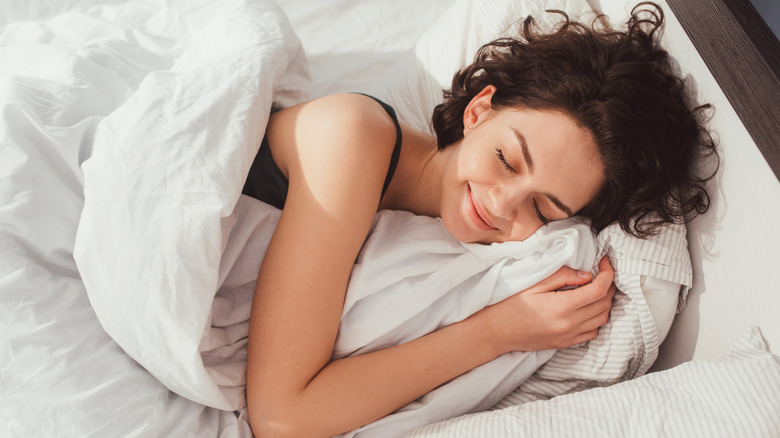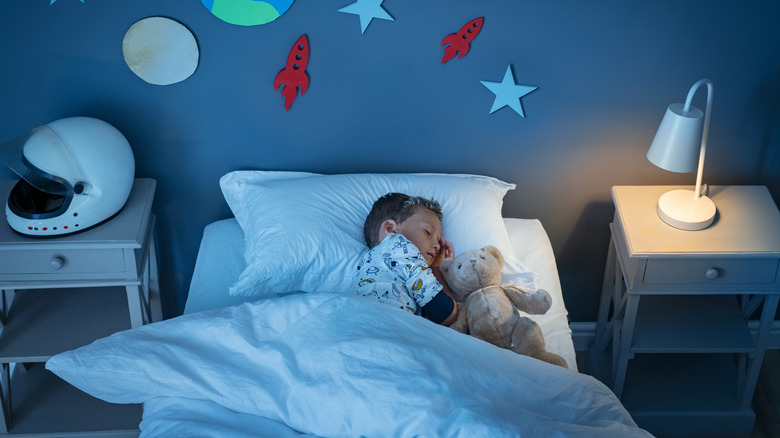These Are The Americans Who Get The Best Sleep
Sleep is essential to our health and well-being. If you don't get a good amount or quality of sleep, then you'll be at higher risk of health problems such as diabetes, stroke, obesity, depression, heart disease, kidney disease, and high blood pressure. You'll also be more likely to fall, injure yourself, or get into an accident. In fact, mistakes caused by sleep deficiency have been responsible for tragedies like airplane accidents and nuclear reactor meltdowns, according to the National Institutes of Health (NIH).
The NIH notes that in addition to improving your safety and your mental and physical well-being, getting a good amount and quality of sleep will improve your memory and ability to learn.
That being said, everybody has different sleep habits. Some people go to bed at 12 a.m. and sleep for six hours a night, some people go to bed at 10 p.m. and sleep for nine hours per night, and others barely have a consistent pattern or schedule at all. Clearly, some sleep habits are healthier than others, but what are the healthiest?
Good sleepers go to bed early and stay in bed for at least eight hours
Sleep Cycle analyzed data from three million users of its app and found that on average, users went to bed at 11:39 p.m., woke up at 7:09 a.m., and got 7 hours and 18 minutes of sleep. The average user rated their mood upon awakening as 57/100 and had a sleep quality of 74.2 percent, with sleep quality being measured by amount of time spent in bed, amount of time spent in deep sleep, frequency and intensity of movements, and number of mid-sleep awakenings.
People who got at least eight hours of sleep enjoyed the best sleep quality at 82 percent, while people who went to bed early woke up in a better mood (up to 87 percent). Exercise also plays a major role in sleep quality, with users getting an average of ten minutes more sleep if they exercised during the day.
Interestingly, people who drank coffee or tea during the day slept six minutes longer and had a one percent better sleep quality, but the Sleep Foundation warns against caffeine within six hours of bedtime, as this could do more harm than good. In addition, Sleep Cycle notes that people tend to get worse sleep if they eat late at night or experience a lot of stress during the day.


